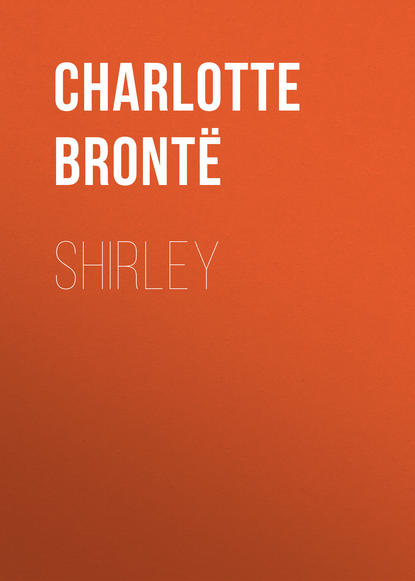По всем вопросам обращайтесь на: info@litportal.ru
(©) 2003-2024.
✖
Shirley
Настройки чтения
Размер шрифта
Высота строк
Поля
Resting her cheek on her forefinger, she waited to be told what circumstance.
"It seems that Nunnely Priory is shut up – that the family are gone back to their place in – shire. It seems that the baronet – that the baronet – that Sir Philip himself has accompanied his mother and sisters."
"Indeed!" said Shirley.
"May I ask if you share the amazement with which I received this news?"
"No, sir."
"Is it news to you?"
"Yes, sir."
"I mean – I mean," pursued Mr. Sympson, now fidgeting in his chair, quitting his hitherto brief and tolerably clear phraseology, and returning to his customary wordy, confused, irritable style – "I mean to have a thorough explanation. I will not be put off. I – I – shall insist on being heard, and on – on having my own way. My questions must be answered. I will have clear, satisfactory replies. I am not to be trifled with. (Silence.)
"It is a strange and an extraordinary thing – a very singular – a most odd thing! I thought all was right, knew no other; and there – the family are gone!"
"I suppose, sir, they had a right to go."
"Sir Philip is gone!" (with emphasis).
Shirley raised her brows. "Bon voyage!" said she.
"This will not do; this must be altered, ma'am."
He drew his chair forward; he pushed it back; he looked perfectly incensed, and perfectly helpless.
"Come, come now, uncle," expostulated Shirley, "do not begin to fret and fume, or we shall make no sense of the business. Ask me what you want to know. I am as willing to come to an explanation as you. I promise you truthful replies."
"I want – I demand to know, Miss Keeldar, whether Sir Philip has made you an offer?"
"He has."
"You avow it?"
"I avow it. But now, go on. Consider that point settled."
"He made you an offer that night we dined at the priory?"
"It is enough to say that he made it. Go on."
"He proposed in the recess – in the room that used to be a picture-gallery – that Sir Monckton converted into it saloon?"
No answer.
"You were both examining a cabinet. I saw it all. My sagacity was not at fault – it never is. Subsequently you received a letter from him. On what subject – of what nature were the contents?"
"No matter."
"Ma'am, is that the way in which you speak to me?"
Shirley's foot tapped quick on the carpet.
"There you sit, silent and sullen —you who promised truthful replies."
"Sir, I have answered you thus far. Proceed."
"I should like to see that letter."
"You cannot see it."
"I must and shall, ma'am; I am your guardian."
"Having ceased to be a ward, I have no guardian."
"Ungrateful being! Reared by me as my own daughter – "
"Once more, uncle, have the kindness to keep to the point. Let us both remain cool. For my part, I do not wish to get into a passion; but, you know, once drive me beyond certain bounds, I care little what I say – I am not then soon checked. Listen! You have asked me whether Sir Philip made me an offer. That question is answered. What do you wish to know next?"
"I desire to know whether you accepted or refused him, and know it I will."
"Certainly, you ought to know it. I refused him."
"Refused him! You —you, Shirley Keeldar, refused Sir Philip Nunnely?"
"I did."
The poor gentleman bounced from his chair, and first rushed and then trotted through the room.
"There it is! There it is! There it is!"
"Sincerely speaking, I am sorry, uncle, you are so disappointed."
Concession, contrition, never do any good with some people. Instead of softening and conciliating, they but embolden and harden them. Of that number was Mr. Sympson.
"I disappointed? What is it to me? Have I an interest in it? You would insinuate, perhaps, that I have motives?"
"Most people have motives of some sort for their actions."
"She accuses me to my face! I, that have been a parent to her, she charges with bad motives!"
"Bad motives I did not say."
"And now you prevaricate; you have no principles!"
"Uncle, you tire me. I want to go away."
"Go you shall not! I will be answered. What are your intentions, Miss Keeldar?"

















